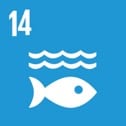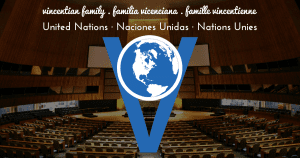We continue to call for the protection of our common home. This month has welcomed the high-level UN Conference to Support the Implementation of Sustainable Development Goal 14: conserve and sustainably use the oceans, seas, and marine resources for sustainable development.
This conference ran from Monday, June 5, to Friday, June 9, at UN Headquarters in New York. It was cohosted by the governments of Fiji and Sweden. The conference aimed to encourage the implementation of SDG 14 by spotlighting seven themes.
OUTCOMES
Member states, at the end of the five-day meeting, agreed to a set of measures designed to be taken urgently and collectively to reverse the oceans’ decline. The UN also received over 1,300 individual or group commitments to take action to protect the oceans.
IMPORTANCE OF REDUCING USE OF PLASTICS
Commonly called the “Oceans Conference,” the gathering elicited many responses about how energizing it was and how much participants learned about key issues, through panel discussions, displays, virtual reality experiences, educational materials, and much more. Sea creatures (such as a tuna, sea horse, and whale’s fluke) fashioned from marine debris, were displayed at the entrance to the UN, offering a visual reminder of the plethora of plastic which winds up in the world’s waters.
The importance of reducing the use of plastics and other pollutants was one of the primary conference messages. General Assembly President Peter Thomson pointed out that the equivalent of one garbage truck’s worth of trash is dumped in the ocean each minute.
TRUE PARTNERSHIP DIALOGUE
This was a true partnership dialogue, which addressed not only marine trash, but also managing, protecting, conserving, and restoring marine and coastal ecosystems. There was also a strong push to minimize and reduce ocean acidification. When carbon dioxide enters the ocean, it changes the water’s chemistry, resulting in increased acidity. That change severely affects biological processes, which can strongly impact socio-economic arenas.
FISHERIES STRETCHED
Addressing stressed fisheries also was a common theme. According to the World Wildlife Fund, more than 85 percent of the world’s fisheries have been pushed to or beyond their biological limits and are in need of strict management plans to restore them.
BLUE ECONOMY STRESSED
Among popular side events were those on the “Blue Economy,” which focused on increasing the economic benefits of oceans to small island development states (SIDS) and least developed countries (LDCs), but in a sustainable way. The concept stems from the idea that with extensive marine areas, for many SIDS the future resource base is predominantly marine.
There was also a loud call to enhance the conservation and sustainable use of oceans and their resources by implementing international law as reflected in the UN Convention on the Law of the Sea (UNCLOS).
BACKGROUND
In September, 2015, heads of state and governments adopted Transforming Our World—the 2030 Agenda on Sustainable Development–which includes the specific goal 14 related to water. A preparatory meeting for the Oceans Conference was conducted at the UN in New York in February.
LAUDATO SI CONNECTION
Alongside this, Pope Francis called for us to care for our common home in Laudato Si. This ecological conversion suggests a number of attitudes which together foster a spirit of generosity and care, full of tenderness. First, it entails gratitude, a recognition that the world is God’s gift, and that we are called quietly to imitate God’s generosity in self-sacrifice and good works. (See Matthew 6:4: “Your father who sees in secret will reward you.”) It also entails a loving awareness that we are not disconnected from the rest of creatures, but joined in a splendid, universal communion. By developing our individual, God-given capacity, an ecological conversion can inspire us to greater creativity and enthusiasm in resolving the world’s problems.
As citizens and as Church, we are called to respond to the cry of the Earth. Cardinal Peter Turkson, who led the Holy See Delegation at the Oceans Conference, named some fundamental interconnected principles to guide the care of the environment in general, and the oceans, in particular. He noted the moral imperative to care for our environment encompasses environmental, economic, social, cultural and day-to-day ecology. The common good, intergenerational justice and an integrated approach to finding solutions that combine the ethical and the environmental also are critical, he said. He stressed the importance of education and the need for dialogue for collaboration at all levels. The Cardinal challenged us to be responsible stewards of the present and the future of the vast blue realm that is God’s gift.
 What can we do?
What can we do?
It was quite evident that much marine debris originates on land. Thus, reducing our use of plastics and being mindful of minimizing our refuse is vital. We can also remove our trash when spending days at the beach. Further, we can encourage leaders to reduce carbon emissions to help reduce ocean acidification. And we can avoid eating the kinds of fish which are no longer in sustainable supply.








0 Comments